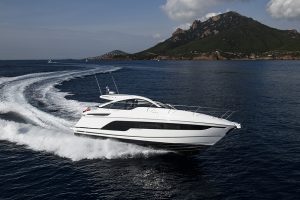Rules and regulations for cruising abroad
So you’re ready to slip the lines, the engine’s ticking away, the lifejackets are on, and the breakables are stowed, but are you really prepared for cruising abroad?
Before setting sail to leave the UK on your boat it is important to make sure you are fully prepared for all the rules and regulations you may encounter.
It’s important to check for each country you visit, as the paperwork required can differ from place to place. Below are a few suggestions of what might be useful to ensure you have on board:
Courtesy flags
As well as flying your customary ensign (as required by the Merchant Shipping Act), when cruising abroad it is polite, but not obligatory, to fly the maritime ensign of that country from the senior signaling position.
The courtesy flag is a small version of the country’s ensign, and is hoisted to acknowledge they are in foreign waters. These can be bought in most chandleries or online.
Paperwork
When taking the boat abroad, you will need papers both for the boat and the crew to satisfy a foreign customs official. If you are requested to present your papers and fail to then there is a chance your boat could be impounded, or a hefty fine will be issued.
A key set of paperwork consisting of your ship’s papers, your passport and any other personal papers should be acquired before you leave the UK, you should take:
- Registration document
- Ship radio licence
- Proof of the VAT status of the vessel
- Recreational craft directive
- Voyage log
- Evidence of competence
- Proof of authority to operate maritime radio
Some countries may need the skipper to be able to prove their competence, and paperwork may be required in the form of an ICC (International Certificate of Operators of Pleasure Craft), commonly referred to as the International Certificate of Competence.
Customs
When cruising abroad you may be required to fill out a customs form on entering a port. In these cases, the crew are supposed to remain on board until the skipper has completed the required forms – usually they’re fairly prompt so you don’t need to worry about quarantining yourself aboard for long.
Red diesel
Highly topical at the moment, the issue of red diesel is a sticky one. In many EU countries it is not legal for pleasure craft to use red diesel (save for commercial craft) as it is in the UK. Vessels who have bought red diesel in the UK sometimes encounter problems abroad in countries where it is not legal.
It is, however, legal for boats that have bought red diesel in the UK to use the fuel in the EU, as confirmed by the EU Directorate-General for Taxation and Customs.
Medical Treatment Abroad
The European Health Insurance Card (EHIC) allows you free or reduced cost emergency treatment when staying in countries in the European Economic Area and Switzerland.
You can apply for an EHIC online for free through the NHS, and it remains valid for five years, however, the card is not an alternative to travel insurance.
The RYA has a fantastic store of extremely helpful information here for any concerns you may have.
Related articles









